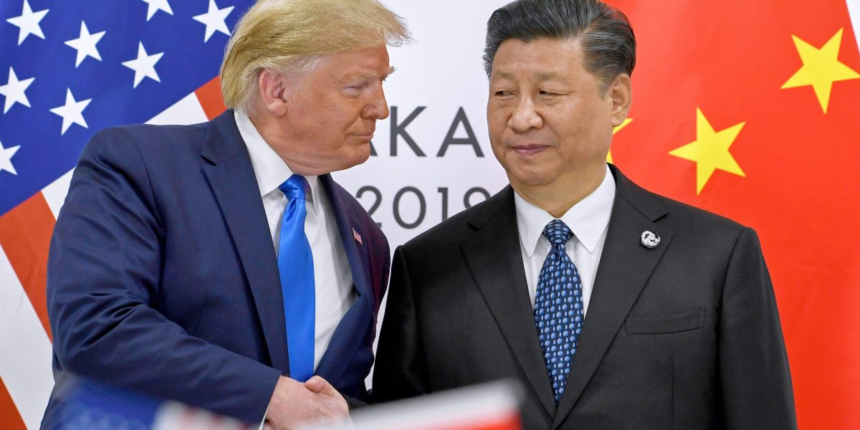The Republican president suggested that he was looking at a “massive increase” of import taxes on Chinese products in response to Xi’s moves. It’s possible that this could amount to either posturing by the United States for eventual negotiations or a retaliatory step that could foster new fears about the stability of the global economy.
“One of the Policies that we are calculating at this moment is a massive increase of Tariffs on Chinese products coming into the United States of America,” Trump posted on his Truth Social platform. “There are many other countermeasures that are, likewise, under serious consideration.”
Trump did not formally cancel the meeting with Xi, so much as indicate that it might not happen as part of a trip at the end of the month in Asia. The trip was scheduled to include a stop in Malaysia, which is hosting the Association of Southeast Asian Nations summit; a stop in Japan; and a visit to South Korea, where he was slated to meet with Xi ahead of the Asia-Pacific Economic Cooperation summit.
“I was to meet President Xi in two weeks, at APEC, in South Korea, but now there seems to be no reason to do so,” Trump posted.
Trump said that China is “becoming very hostile” and that it’s holding the world “captive” by restricting access to the metals and magnets used in electronics, computer chips, lasers, jet engines and other technologies.
“I have not spoken to President Xi because there was no reason to do so,” Trump posted. “This was a real surprise, not only to me, but to all the Leaders of the Free World.”
The Chinese Embassy in Washington did not immediately respond to an Associated Press request for comment.
There is already a backlog of export license applications from Beijing’s previous round of export controls on rare earth elements, and the latest announcements “add further complexity to the global supply chain of rare earth elements,” the European Union Chamber of Commerce in China said in a statement.
Gracelin Baskaran, director of the Critical Minerals Security Program at the Center for Strategic and International Studies in Washington, D.C., said China signaled it is open to negotiations, but it also holds leverage because to dominates the market for rare earths with 70% of the mining and 93% of the production of permanent magnets made from them that are crucial to high-tech products and the military.
“These restrictions undermine our ability to develop our industrial base at a time when we need to. And then second, it’s a powerful negotiating tool,” she said. And these restrictions can hurt efforts to strengthen the U.S. military in the midst of global tensions because rare earths are needed.
Just what Trump’s threat meant was open to interpretation, as it could simply be an attempt to gain some leverage under the belief that China has overplayed its hand or an ominous sign of trade tensions leading to a potentially destructive increase in tariff rates.
Wendy Cutler, senior vice president of the Asia Society Policy Institute, said Trump’s post shows the fragility of the détente between the two countries and it’s unclear whether the two sides are willing to de-escalate to save the bilateral meeting.
Cole McFaul, a research fellow at Georgetown University’s Center for Security and Emerging Technology, said that Trump appeared in his post to be readying for talks on the possibility that China had overplayed its hand. By contrast, China sees itself as having come out ahead when the two countries have engaged in talks.
“From Beijing’s point of view, they’re in a moment where they’re feeling a lot of confidence about their ability to handle the Trump administration,” McFaul said. “Their impression is they’ve come to the negotiating table and extracted key concessions.”
Craig Singleton, senior director of the China program at the Foundation for Defense of Democracies, a think tank, said Trump’s post could “mark the beginning of the end of the tariff truce” that had lowered the tax rates charged by both countries.
It’s still unclear how Trump intends to follow through on his threats and how China plans to respond.
“But the risk is clear: Mutually assured disruption between the two sides is no longer a metaphor,” Singleton said. “Both sides are reaching for their economic weapons at the same time, and neither seems willing to back down.”
_
AP writers Stan Choe in New York and Josh Funk in Omaha, Nebraska, contributed to the report.









